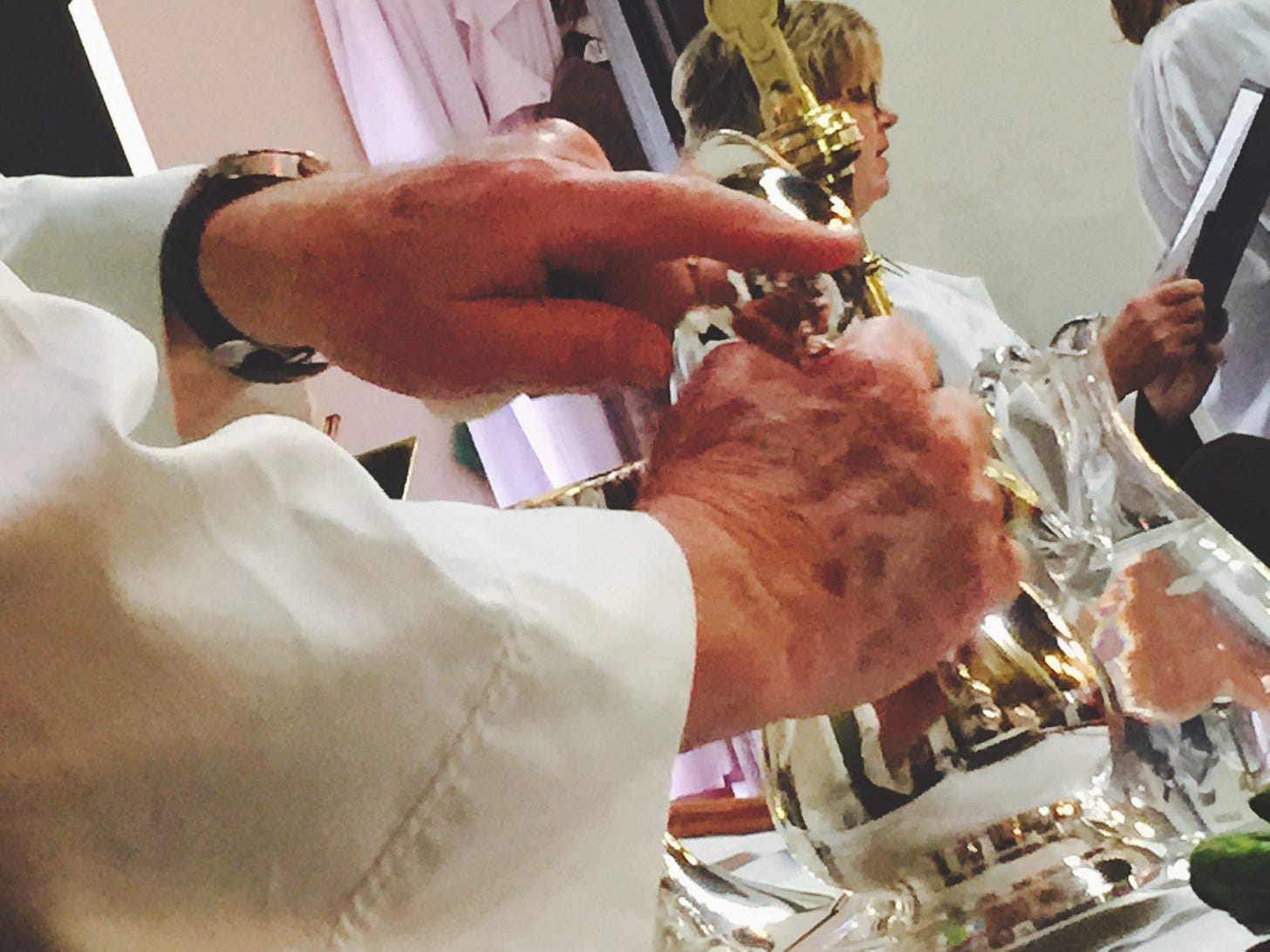'The church needs us, but they don't seem to know it.'
The conundrum of retired clergy in a transforming institution
I read an article about the clergy shortage in the church about once a month. Yet when I talk with my retired clergy friends, they tell me they often feel overlooked or under-utilized.
I asked my friends Fr. Jessee Neat and Fr. Peter Faass how they felt about being recently retired clergy in the Episcopal Church, and the floodgates opened!
’Just because I’m retired doesn’t mean I have nothing to offer’, Peter said. 'The church needs us, but they don't seem to know it.'
There are just under 7,000 congregations in the Episcopal Church. There are roughly 5,500 active clergy. These numbers are comparable in other denominations. It seems like Peter is right - we need retired clergy to make up the gap.
So why do so many retired clergy feel sidelined?
Reading through Michael Plekon’s book ‘Ministry Matters’ - I’m still on chapter one! - I found something personal tucked near the closing paragraphs.
Plekon writes:
‘One particularly challenging confrontation came from being marginalized upon retirement.’
Even while writing a book on the role of clergy in the 21st century church - and how it is changing as the church changes - Plekon feels this sense that his own ministry is not wanted or needed.
‘It is one thing to be retired from active ministry’, he writes. ‘It is another to be deprived of the ability to preach, preside, and offer pastoral care.’
I feel the frustration from my retired clergy friends. I can also feel the conundrum:
Church is changing - we’re experimenting with new ways to gather, new ways to serve with congregations, new technology to support ministry. In some ways, retired clergy are seen as vestiges from the old days, the institutionalism we’re trying to reimagine was we move forward with a leaner, more forward-thinking organization.
And of course, some clergy want to be really retired, not serving the church at all anymore.
In my experience, though, as a priest or minister you’re never really done sharing Word and sacrament, bringing God’s love more fully in the world. You’re just doing it in new ways.
’I feel that retirement is not a full stop in my priestly ministry, just a new phase of it’ - the Rev. Peter Faass
It occurs to me that not only do retired clergy have a wealth of wisdom and experience to share, but that they’re transforming their own ministry at the same time that the whole church is!
One thing retirement affords clergy is a chance to serve their ministry in new ways, and the possibility of working in collaboration with dioceses and other church leadership structures to experiment with them.
Many have the excitement and energy for this, but few seem to find the doors open to these conversations.
‘my sense of being marginalized rests with how our … bishops don't seem to know how to best utilize and/or be in relationship with their retired clergy, especially those who have a deep and broad skill set’, says my friend Jessee:
‘Just think of the treasure of accumulated knowledge and wisdom that's available to a bishop if they'd create a 'cabinet' of grey beards/grey hairs.’
The church has always lived in the tension of our ancient tradition and the challenges and opportunities for sharing the Gospel in the modern age.
It seems to me that there is a huge opportunity for retired clergy to serve as resources and guides as we live in the particular tension that today’s church faces.




Thank you for writing this. I would be glad to “talk” with you sometime about the plight of the other manifestation of “retired” clergy, the “retired” vocational deacon, of which I am one. We are even more at the mercy of our bishops as we are the bishop’s people and unable to do supply as the “retired” priest is. We usually have to be invited to serve in the usual manner in a church and then apply to the bishop a year at a time to continue to do so. If a bishop chooses to have their retired deacons out of their hair, well…. I recently had an article published in Diakoneo, the house organ of the Association of Episcopal Deacons which discussed the reimagining of call on retirement (generally work outside of the church) and would be glad to supply a PDF copy of the magazine to you. Still, for those of us who are called to preach our call to congregations and be an example to a congregation beyond the icon status, both of which can be denied to us on retirement, we become invisible after “retirement.”
Amen. I’m newly pensioned this year. I prefer to use ‘pensioned’ rather than ‘retired.’ I asked my bishop not to write me off. My ministry can still be all I am called and willing to exercise.
As an interim specialist who sometimes had breaks between gigs I was tired of being an unemployed, and therefore, second class citizen of the clerics. At least that’s what it felt like.